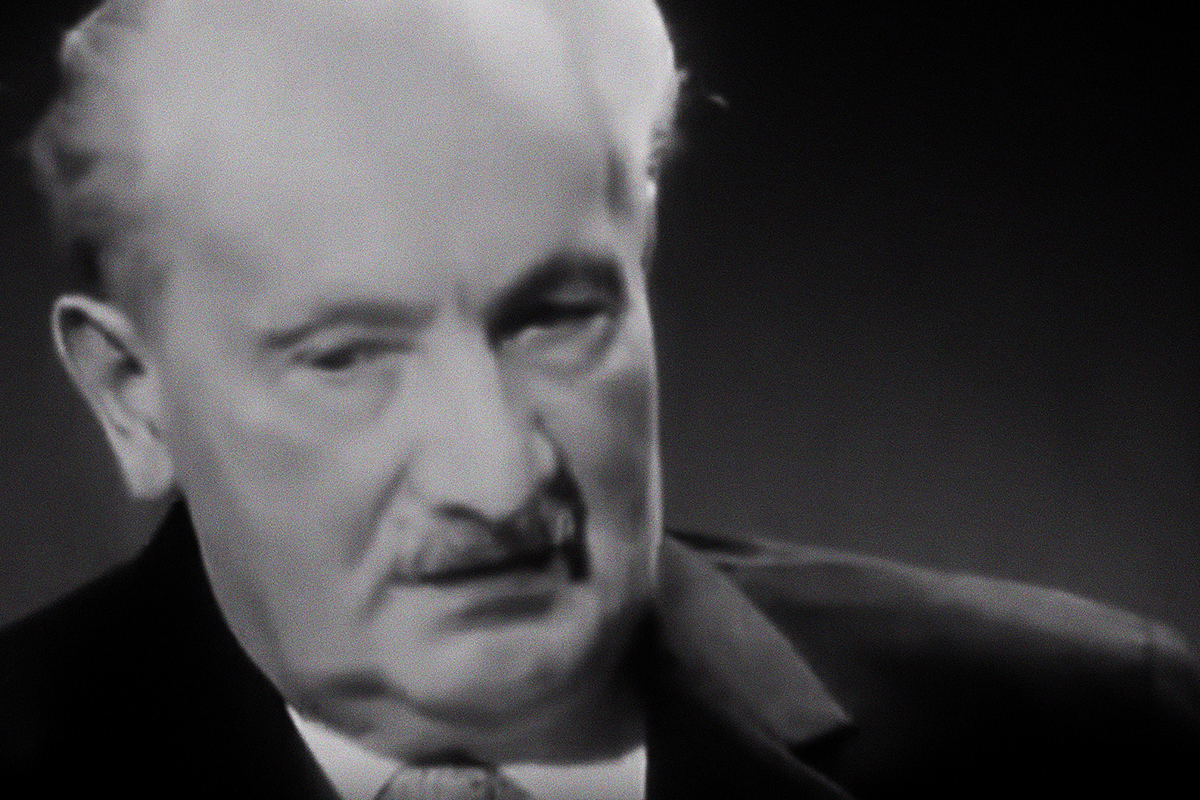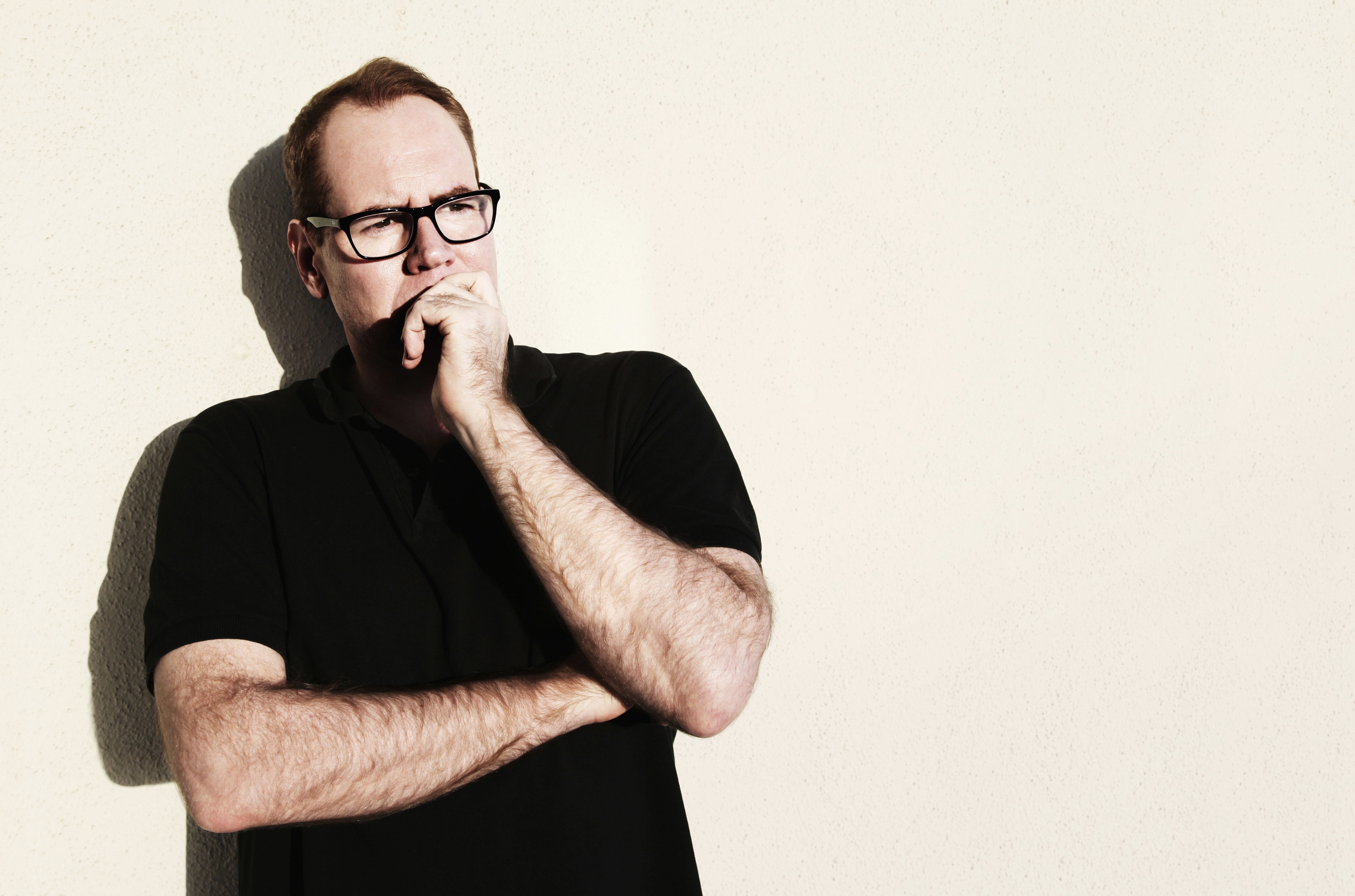recent
Why We Should Read Nietzsche
My sense is that Nietzsche is best understood as a radical individualist; one who insists passionately that our duty in life is to become what we are. But what kind of person is that?

This the fourth instalment in a series of essays by Matt McManus examining the work and legacies of the totalitarian philosophers.
In Ecce Homo, the autobiographical self-examination written shortly before his descent into madness on the streets of Turin in 1889, Nietzsche cheekily opined that he was a “destiny.” It must have seemed like an almost tragic act of self-aggrandizement at the time. When he collapsed near the height of intellectual powers, Nietzsche was a sick and lonely man. His books, many of them self-published at Nietzsche’s expense, were barely selling and he often depended on charity from his friends. A few years earlier Nietzsche’s one firm romantic attachment, Lou-Salome, had rejected his proposal of marriage and rebounded on vacation with the philosopher’s friend Paul Ree. His sister Elizabeth and her husband were increasingly flirting with forms of nationalism and anti-Semitism that the cosmopolitan Nietzsche found extremely vulgar. Ironically, she would assume responsibility for Nietzsche’s care throughout his illness, editing many of his books and falsely presenting her brother as a proto-Nazi icon. It must have seemed at the time that Nietzsche’s “destiny” was to live out his remaining days as a vegetative invalid and quaint intellectual curiosity.
Yet, only a few decades later, Martin Heidegger would declare that in Nietzsche’s thought, the history of Western metaphysics had finally reached its climax. If Plato was the originator of Western metaphysics, then in Nietzsche every Platonic insight had been inverted and the story had moved from one extreme to the next. Many at the time might have agreed, as new artistic, intellectual, and political movements claiming Nietzsche as a predecessor were emerging with tremendous rapidity. Unfortunately, not all of these were admirable and many would stain the philosopher’s reputation for many decades to come. Most infamously, many fascist and Nazi figures saw in Nietzsche a clear precursor to their outlook. Perhaps the most infamous example is Leni Riefenstahl’s 1935 propaganda film Triumph of the Will, which depicts Adolph Hitler as a pseudo-superman descending like Zarathustra from the clouds to greet the German people. As a result, Nietzsche’s initial reception in liberal democratic and progressive circles was often chilly. He was regarded as an inegalitarian philosopher who celebrated strength and cruelty, or a shrill proponent of irrationalism. In his 1945 work A History of Western Philosophy, Bertrand Russell spoke for many at the time when he wrote:
I dislike Nietzsche because he likes the contemplation of pain, because he erects conceit into a duty, because the men whom he most admires are conquerors, whose glory is cleverness in causing men to die.

Nietzsche and Politics
The goal of humanity lies in its highest specimens.
~Friedrich Nietzsche, Untimely Meditations
Unlike the controversy surrounding Marx and Heidegger, the outrage associated with Nietzsche has given way to ubiquitous and lavish praise. Since the end of the Second World War, thanks in no small part to the tireless efforts of interpreters like Walter Kaufmann, there has been a flurry of more rigorous and charitable interpretations of Nietzsche. The range is truly impressive; perhaps no other philosopher has influenced so many different opinions. Nietzsche was a profound influence on figures like Gilles Deleuze and Michel Foucault who have become prominently associated with the political Left, who supported overcoming society’s remaining moral and traditional barriers to self-creation. Other figures influenced by Nietzsche moved to the political Right, including the libertarian Ayn Rand and the classicist Leo Strauss. Artists have invoked his work to call for radical new aesthetic forms to emerge, while others have appealed to him to decry the decadence of modern art and feeling. Perhaps most interestingly, Nietzsche has even gained some popular traction, with his books selling millions of copies despite their strange topics and myriad styles. Despite this, Nietzsche remains a thinker very much at odds with many of the political positions at play today. This is perhaps inevitable, as Nietzsche was ever the contrarian and would likely have approved of Kierkegaard’s solemn maxim that “when you label me, you negate me.”

Firstly, Nietzsche was certainly in no way a progressive in gestation. He would almost certainly have had nothing but contempt for the postmodern proponents of difference and toleration who invoke aspects of his thought. Nietzsche was a staunch elitist who frequently derided the “herd” which made up most of mankind. And he was openly contemptuous of many cultural practices and traditions; lampooning Buddhism, dismissing the British as a nation of mediocre shopkeepers, and of course endlessly denigrating Judeo-Christianity as religions of “resentment” oriented by a “slave” morality. Moreover, Nietzsche had little good to say about either socialism or radical democracy, regarding them as little more than watered down efforts at secularizing vulgar Christian tropes.
Secondly, Nietzsche would not have been fond of contemporary liberalism—classical or egalitarian—and liberal rights, either. For Nietzsche, the call for rights—whether to private property or welfare—were simply slavish demands by the weak for protection from the worthy and strong. As John Rawls pointed out in his critique of Nietzschian “perfectionism,” there is a strong sense in Nietzsche that society does not exist to benefit all of its members. Instead, it exists to enable the few truly great men and women to rise and establish new and almost god-like kinds of values. It was offensive that such figures must be held back by the mediocrity of humankind; great men like Napoleon cared little for the rights and welfare of others as they rode out to remake the world. This, of course, did not mean that such individuals wanted to trample over others as a sign of their greatness. Rather, as he put in On the Genealogy of Morals, the great “eagle” devotes very little thought one way or another to the “lambs” beneath it. But that includes feelings of pity where the lamb lies between the eagle and its goals.
There is nothing very odd about lambs disliking birds of prey, but this is no reason for holding it against large birds of prey that they carry off lambs. And when the lambs whisper among themselves, ‘These birds of prey are evil, and does this not give us a right to say that whatever of the opposite of a bird of prey must be good?’ there is nothing intrinsically wrong with such an argument—though the birds of prey will look somewhat quizzically and say, ‘We have nothing against these good lambs; in fact, we love them; nothing tastes better than a tender lamb.’
Thirdly, Nietzsche would hardly be a friend of the contemporary Right either, in any of its various forms. Despite some rejigging by figures like Ayn Rand, Nietzsche was hardly a proto-libertarian or classical liberal. Nietzsche disdained consumer culture and capitalism, seeing it as producing vulgar and decadent societies of “last men” focused on the pursuit of meaningless wealth and menial satisfactions. These last men lived out their days in material affluence, but were committed to no truly great projects, mostly concerned with issues like “health” and physical appearance. One can think of the Wall Street icons ridiculed by Bret Easton Ellis in American Psycho, each thinking he was lord of the world and each in fact tedious and indistinguishable from on another. Nietzsche was also dismissive of nationalism, sharing Schopenhauer’s opinion that it was an infantile outlook for individuals not strong enough to will their own destiny without banding together with the rest of the “herd.” Part of this is due to Nietzsche’s personal disdain for German nationalism, and his preference for pan-Europeanism. Whether this means he would be fond of the contemporary European Union, with its liberal outlook and social democratic policies, one can only guess. But he would have certainly regarded the idea of moving away from the nation-state model appealing.

Finally, Nietzsche would have found the invocations by the far Right—past and present—infuriating. He often looked at his sister Elizabeth’s gradual descent into German nationalism and later Nazism with an uncharacteristic mixture of pity and scorn. Had Nietzsche lived to see the rise of Hitler, he would likely have immediately recognized the Austrian dropout as the mean and resentful creature he was. He would likely have been horrified to see his work on the will to power and the great man transformed into a kind of racist eugenics, insisting that his work was about the individual self and not collective genetic overcoming. And, of course, Nietzsche would regard the deindividuation of totalitarianism, its attempt to completely assimilate the single person into the nation, as nihilistic. Today, no doubt Nietzsche would have lambasted the alt-right efforts to associate his work with concerns about immigration and the racial makeup of society.
So what then did Nietzsche believe politically? In some respects it is difficult to say a priori, since if one could give a strict formula for how to produce the “highest specimens” of humanity then they would cease to be the highest. Instead their greatness and creativity would be manufactured and predictable. As Nietzsche sometimes puts it, a priori formulas must occasionally give way to the nobility of the “nose,” which recognizes the scent of greatness and vulgarity when it is near. My sense is that Nietzsche is best understood as a radical individualist; one who insists passionately that our duty in life is to become what we are. But what kind of person is that? And how can we avoid false paths? I think the deepest clue lies in his profound treatment of resentment, which is well described by Gilles Deleuze in his classic book Nietzsche:
We rediscover the definition of resentment: resentment is a reaction which simultaneously becomes perceptible and ceases to be acted: a formula which defines sickness in general. Nietzsche is not simply saying that resentment is a sickness, but rather that sickness as such is a form or resentment.
For Nietzsche, much of human action which appears superficially great is actually done for slavish reasons. The weakness we feel at our limitations becomes a hatred for those who present themselves as our betters, and we therefore undertake works to either bring them down or prove our own superiority. This can take myriad forms, from the socialist demand to redistribute wealth to the poor to the nationalist demand that intellectually minded cosmopolitans are corrupting the pure soul of the real people. Sometimes it even takes more vulgar forms, for instance when someone engages in self-aggrandizing acts to draw attention to themselves from the mass of people who dared to ignore them. In some circumstances, resentment can lead to tremendous and terrifying outbursts of energy, which give it the appearance of strength and power. But this is a lie, since buried beneath all such acts is a personal and collective weakness which stifles all efforts to truly overcome its opposition.
The person driven by resentment may claim to hate the rich or the foreigner and wish them to be destroyed. But they are also dependent on them, since the only way the resentful can feel any real power is by feeling morally superior to what opposes them. The poor need to feel morally superior to the rich to claim they are victims being exploited, as nationalists needs to feel morally superior to the foreigner to feel pride in their collective identity. In this sense, resentment is an impotent force which can wail and brag, but never achieve anything truly for itself. This is left to the truly great person, who lives for himself and his values and cares little enough for the opinions or actions of others.
Conclusion: What Can We Learn From Nietzsche
Nietzsche is one of the most difficult thinkers in the Western canon to think through. This is both in spite and because of his brilliant literary powers. In part due to illness which hampered his ability to write for an extended period of time, most of Nietzsche’s writings appear as aphorisms and short essays rather than sustained works. Nietzsche was also moody and emotional, meaning that he occasionally lashes out with vitriol against a figure or idea which is later treated more soberly. Overall, his philosophy is not a manual for how to become a Nietzschian, but rather how to overcome one’s self limitations and unleash new creative potential and insight. Nonetheless, there are two key points we can pick up from his work.
Firstly, Nietzsche draws our attention to the historical contingency of many of our moral conceits. This is perhaps best accomplished in the On the Genealogy of Morals and the short books Twilight of the Idols and The Antichrist. In these works, Nietzsche develops some of his most striking imagery and ideas. He suggests that most every moral philosopher and figure thus far has failed to recognize that the moral claims they presented were historically and psychologically motivated. They took the moral claims presented as true, when in fact they were culturally or psychologically motivated. The failure to acknowledge this left us unable to recognize the deepest prompts to our actions, leading to a great deal of corruption and vulgarization.
For instance, Nietzsche famously had mixed feelings about Jesus Christ, occasionally ridiculing him, and occasionally praising him as the only opponent worthy of the Antichrist. In either case, he was the only real Christian and he “died on the cross.” Later Christians appropriated his rhetoric to argue that he sought to bring universal love. The reality is that they wanted to replace the aristocratic and warlike ancient Greco-Roman world with one that conformed to the mediocrity of the slaves, and so needed to find a way to re-describe weakness and servility as a moral virtue. The upshot was Christian morality, which was resentful to its core. Nietzsche often gleefully pointed out how the religion of universal love was paranoid about sin, fixating with almost erotic satisfaction on the suffering of those in hell. Nietzsche thought that unawareness of often unconscious motivators leads us to make vulgar and baseless moral claims. This insight is frequently misused today by a host of commentators who substitute pop-psychologism for real analysis of their opponent’s position. Invocations of resentment can also be dangerously overused to dismiss appeals which are really about fairness or justice. Nonetheless, it was a profound contribution to our understanding of morality.
Secondly, and most innovatively, Nietzsche’s writings radically deepened our understanding of what constitutes authentic individuality. Like his existentialist kin Søren Kierkegaard and Simone de Beauvoir, Nietzsche recognized that we all too often regard being an individual as simply doing what we profess to want. It certainly is not mere consumerism and the acquisition of material goods. He draws our attention to the many ways in which external factors like culture and internal psychological motivations like resentment can actually lead us to become false or vulgar iterations of our selves. The task then is to free ourselves from these inauthentic constraints through continuous and arduous self-overcoming.






